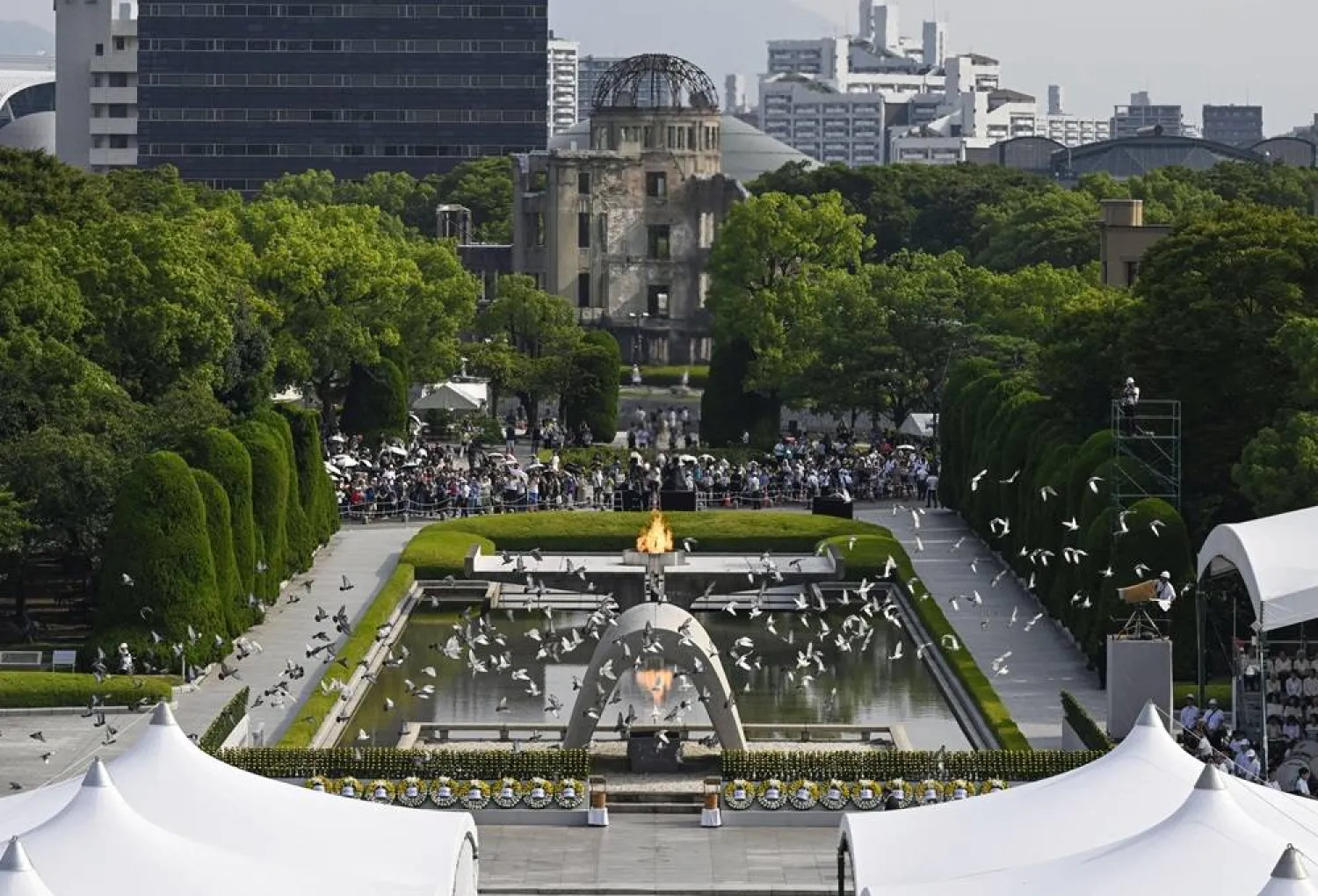Hiroshima officials urged world leaders Tuesday to stop relying on nuclear weapons as deterrence and take immediate action toward abolishment — not as an ideal, but to remove the risk of atomic war amid conflicts in Ukraine and the Middle East and rising tensions in East Asia.
They commented as Hiroshima remembered its atomic bombing 79 years ago at the end of World War II.
The memorial comes days after Japan and the US reaffirmed Washington's commitment to “extended deterrence,” which includes atomic weapons, to protect its Asian ally. That is a shift from Japan’s past reluctance to openly discuss the sensitive issue as the world’s only country to have suffered atomic attacks.
Hiroshima Gov. Hidehiko Yuzaki said nuclear-armed nations and supporters of atomic deterrence “deliberately ignore ... the fact that once people invented a weapon, they used it without exception.”
“As long as nuclear weapons exist, they will surely be used again someday,” Yuzaki said in his address at the Hiroshima Peace Memorial Park.
“Nuclear weapons abolition is not an ideal to achieve far in the future. Instead, it is a pressing and real issue that we should desperately engage in at this moment since nuclear problems involve an imminent risk to human survival,” he said.
Hiroshima Mayor Kazumi Matsui said Russia’s war on Ukraine and the worsening conflict between Israel and Palestinians are “deepening distrust and fear among nations” and reinforcing a view that use of force in settling conflict is unavoidable.
The atomic bomb dropped by the United States on Hiroshima on Aug. 6, 1945, destroyed the city, killing 140,000 people. A second bomb dropped three days later on Nagasaki killed 70,000 more. Japan surrendered on Aug. 15, ending World War II and Japan’s nearly half-century aggression in Asia.
About 50,000 people at the ceremony observed a minute of silence with the sound of a peace bell at 8:15 a.m., the time when a US B-29 dropped the bomb on the city. Hundreds of white doves, considered symbols of peace, were released.
Prime Minister Fumio Kishida, who attended the ceremony, said global conflicts and divided views over approaches to nuclear disarmament make achieving that goal “all the more challenging,” but pledged to do his utmost in pursuing “realistic and practical measures” to build momentum within the international community.
His critics say it is a hollow promise because Japan relies on the US nuclear umbrella for protection and has been rapidly expanding its military.
Japan, the United States and other regional allies have been stepping up security cooperation in response to a more assertive China and the growing nuclear and missile threats from North Korea. Japan has sought stronger US protection by its nuclear capability.
Many survivors of the bombings have lasting injuries and illnesses resulting from the explosions and radiation exposure and have faced discrimination in Japan.
As of March, 106,823 survivors — 6,824 fewer than a year ago, and now with an average age of 85.58 — are certified as eligible for government medical support, according to the Health and Welfare Ministry. Many others, including those who say they were victims of the radioactive “black rain” that fell outside the initially designated areas of Hiroshima and Nagasaki, are still without support.
Hiroshima officials called on Kishida’s government to do more to provide support and address their wishes.
The aging survivors, known as “hibakusha,” continue to push for a nuclear arms ban as they desperately campaign to have their effort kept alive by younger generations.









